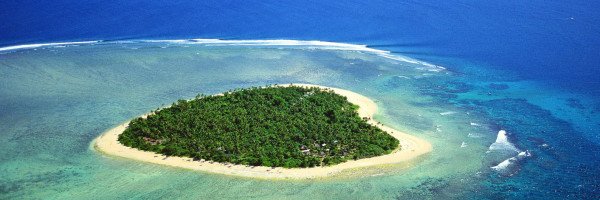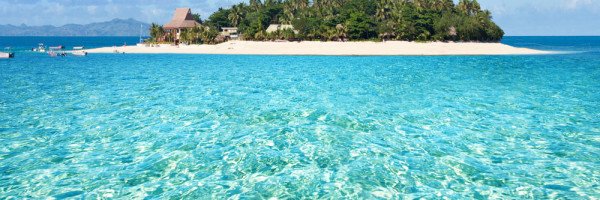Understanding Fiji’s Unique Ecosystem
Fiji, a stunning archipelago in the South Pacific, boasts a rich diversity of wildlife and ecosystems, making it an exceptional destination for eco-tours. Families visiting the Fiji Islands can explore vibrant coral reefs, lush rainforests, and unique flora and fauna. The islands are home to various endemic species, such as the Fiji banded iguana and the Fiji petrel, providing families with an opportunity to learn about conservation efforts firsthand. Eco-tours in Fiji often include guided hikes through the rainforest, where families can spot exotic birds and learn about the critical role each species plays in the ecosystem. These adventures can be both educational and thrilling for children, helping them develop a love for nature and wildlife. Parents can also find child-friendly activities such as nature scavenger hunts or birdwatching, which are not only fun but serve as an engaging way to teach kids about the importance of biodiversity and conservation. For families visiting from New Zealand, eco-tours in Fiji can serve as a bridge to understanding the similarities and differences between the two countries’ ecosystems. Engaging in discussions about local wildlife in both regions can enhance children’s appreciation for nature.Engaging with Local Conservation Efforts
Fiji is actively involved in various conservation efforts aimed at preserving its unique wildlife and habitats. Families can participate in eco-tours that incorporate visits to local conservation projects, allowing them to witness the impact of these initiatives firsthand. For example, some tours offer opportunities to help with reforestation efforts or to learn about marine conservation programs aimed at protecting coral reefs. These experiences not only educate children about the challenges faced by wildlife but also empower them to contribute positively to the environment. Engaging with local conservationists can spark discussions about how families in New Zealand can participate in similar efforts back home, such as beach clean-ups or wildlife monitoring programs. In addition to these hands-on activities, many eco-tours in Fiji provide interactive workshops where families can learn about sustainable practices. These workshops often cover topics like the importance of reducing plastic use, understanding marine ecosystems, and the role of indigenous knowledge in conservation.Child-Friendly Adventures in Marine Environments
Fiji is renowned for its pristine beaches and crystal-clear waters, making it an ideal destination for marine eco-tours that cater to families. Snorkeling, kayaking, and glass-bottom boat tours are just a few of the activities that allow families to explore the vibrant underwater ecosystems of the Fiji Islands. These adventures are designed to be child-friendly, ensuring that kids can safely enjoy the underwater world while learning about marine life. Many eco-tours include educational components, such as guided snorkeling trips where marine biologists explain the different species of fish and coral. This not only enhances the experience but also provides children with a deeper understanding of the delicate balance within marine ecosystems. Families can draw parallels between the marine environments in Fiji and New Zealand, discussing the importance of protecting both regions’ coastal ecosystems. Additionally, some tours offer opportunities for families to participate in coral restoration activities. Learning about the significance of coral reefs and actively contributing to their preservation can leave a lasting impression on young minds, inspiring them to advocate for marine conservation.Exploring Fiji’s Terrestrial Wonders
Beyond its stunning marine environments, Fiji offers a wealth of terrestrial wonders that families can explore together. Eco-tours often include guided hikes through lush rainforests, where families can admire the diversity of plant life and the unique wildlife that inhabit these ecosystems. Children will marvel at the sight of towering trees, vibrant flowers, and perhaps even spot a rare bird or two. These hikes can be tailored to suit families with children, featuring shorter trails and engaging activities along the way. Nature walks that incorporate fun facts about the local flora and fauna can help ignite children’s curiosity about the natural world. For instance, families can participate in tree identification games or learn about the medicinal uses of various plants. Families from New Zealand can relate their experiences in Fiji to similar activities available in their homeland, such as exploring the Waitakere Ranges or the Abel Tasman National Park. Both regions offer incredible opportunities for families to connect with nature while fostering a sense of responsibility towards preserving the environment.Cultural Immersion and Eco-Tourism
Fiji’s rich culture is intertwined with its natural environment, making eco-tours an excellent opportunity for families to immerse themselves in local traditions while learning about conservation. Many eco-tours include visits to traditional villages where families can experience Fijian culture, including traditional dances, crafts, and cooking. Participating in cultural activities can provide children with a broader perspective on the importance of environmental stewardship within different cultures. For instance, families can learn about the traditional practices of sustainable fishing or farming, which have been passed down through generations. This hands-on experience can help children understand the relationship between cultural practices and conservation efforts. Families from New Zealand can appreciate the similarities in cultural respect for nature found in both Fijian and Māori traditions. By engaging with local communities, families can foster a sense of global citizenship in their children, encouraging them to respect and learn from different cultures and their approaches to environmental conservation.Planning Your Eco-Tour Adventure
When planning an eco-tour in Fiji, families should consider several factors to ensure an enjoyable and educational experience. First, it’s essential to choose a tour operator that prioritizes sustainability and conservation efforts. Researching reviews and recommendations can help families find reputable eco-tours that align with their values. Next, consider the interests and ages of your children when selecting activities. Look for tours that offer child-friendly options, ensuring that everyone can participate and enjoy the experience. Many tour operators provide family packages that include activities tailored to various age groups, making it easier for families to plan their adventures. Additionally, families should pack appropriately for their eco-tours. Comfortable walking shoes, swimwear, and sun protection are essential for exploring the diverse environments of Fiji. Engaging in discussions about responsible travel practices, such as reducing waste and respecting local cultures, can instill eco-conscious values in children before the trip even begins. Families from New Zealand can also take advantage of the proximity to Fiji, making it a practical choice for a family vacation that combines adventure and education. By planning activities that include both exploration and learning, families can create lasting memories while fostering a love for nature and conservation.Making Lasting Memories: Reflections on Eco-Tours
After participating in eco-tours in Fiji, families can reflect on their experiences and the lessons learned about wildlife and conservation. Encouraging children to journal about their adventures, write stories, or create art inspired by their experiences can help reinforce their understanding and appreciation of nature. Families can also discuss how their experiences in Fiji relate to their lives back in New Zealand. This could include conversations about what they learned about conservation, the importance of protecting wildlife, and how they can make a difference in their own communities. Encouraging children to share their newfound knowledge with peers can help spread awareness about environmental issues. Furthermore, families may consider supporting ongoing conservation efforts in Fiji after their trip, whether through donations or by participating in similar initiatives at home. This connection can create a deeper sense of responsibility and commitment to protecting the planet for future generations. By embracing eco-tours in Fiji and reflecting on their experiences, families can create lasting memories that inspire a lifelong appreciation for nature and a commitment to conservation. Families can explore more about eco-tours and conservation efforts by visiting Fiji Islands and planning their next adventure together.FAQs
What are eco-tours, and why are they beneficial for families?
Eco-tours are travel experiences that focus on exploring natural environments while promoting conservation and sustainability. They are beneficial for families as they provide educational opportunities for children to learn about wildlife, ecosystems, and the importance of protecting our planet, all while enjoying fun, engaging activities together.
What unique wildlife can families expect to see in Fiji?
Families on eco-tours in Fiji can expect to see a variety of unique wildlife, including colorful tropical fish, vibrant coral reefs, and diverse bird species. Children will enjoy spotting the endemic Fijian iguana and learning about the various marine animals that inhabit Fiji’s pristine waters, making it an exciting adventure for all ages.
Are there child-friendly activities included in eco-tours?
Yes, many eco-tours are designed with families in mind and offer a range of child-friendly activities. These can include snorkeling in shallow waters, guided nature walks, wildlife spotting excursions, and interactive workshops focusing on local conservation efforts, ensuring that children are engaged and entertained throughout the experience.
How do eco-tours support conservation efforts in Fiji?
Eco-tours support conservation efforts in Fiji by promoting sustainable practices and raising awareness about environmental issues. Many tours contribute a portion of their proceeds to local conservation projects, helping to protect endangered species and restore natural habitats, allowing families to play a role in preserving the beauty of Fiji for future generations.
What should families pack for an eco-tour in Fiji?
Families should pack light, breathable clothing suitable for warm weather, along with swimwear, reef-safe sunscreen, hats, and insect repellent. Don’t forget to include binoculars for wildlife watching and a camera to capture memorable moments. Bringing reusable water bottles and snacks can also help reduce waste during your eco-adventure.
Are there any age restrictions for participating in eco-tours?
Most eco-tours in Fiji welcome families with children of all ages, but some activities may have specific age recommendations for safety reasons. It’s best to check with the tour operator beforehand to ensure that the chosen activities are suitable for your children’s ages and abilities, making it a safe and enjoyable experience for everyone.
How can families contribute to local communities while on an eco-tour?
Families can contribute to local communities by engaging with local guides, participating in community-based activities, and supporting local businesses. Many eco-tours offer opportunities to visit villages, learn about traditional Fijian culture, and even participate in conservation projects, allowing families to give back while enjoying their holiday.
References
- Fiji Islands Official Tourism Website – A comprehensive resource for exploring Fiji’s eco-tourism offerings, including family-friendly wildlife experiences and conservation initiatives.
- Fiji Travel – Eco Tours – Highlights a variety of eco-tourism experiences available in Fiji, focusing on wildlife interaction and conservation efforts suitable for families.
- Conservation International – Fiji Projects – Details ongoing conservation projects in Fiji, emphasizing the importance of protecting unique wildlife and ecosystems for future generations.
- National Geographic – Fiji Eco-Tourism – Offers insights into eco-tourism in Fiji, featuring family-friendly activities that promote wildlife discovery and environmental education.
- Fiji Times – Eco Adventures for Families – An article outlining various eco-adventures in Fiji that are perfect for families looking to engage with nature and learn about conservation efforts.







